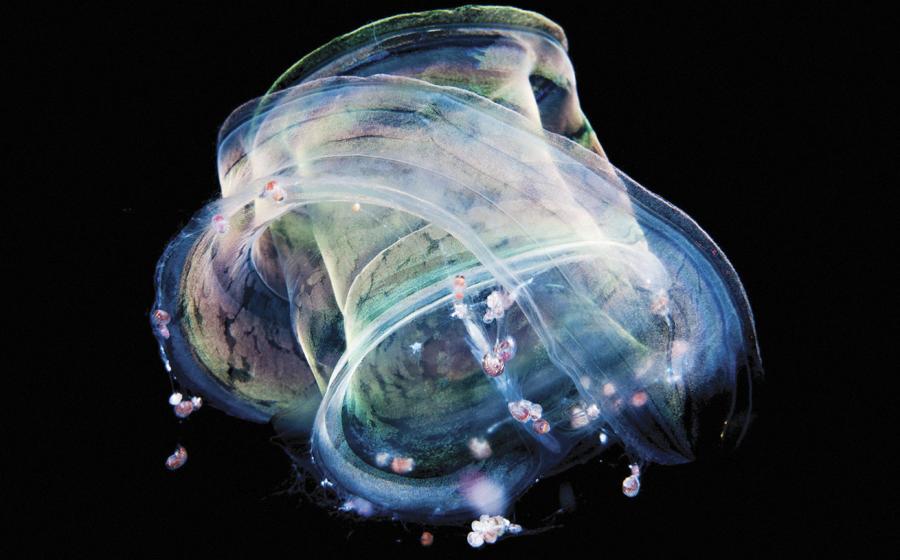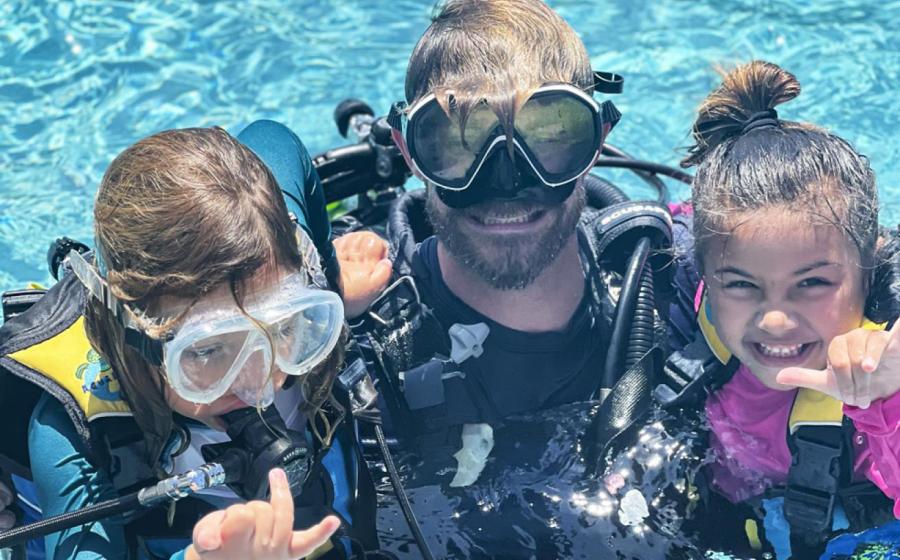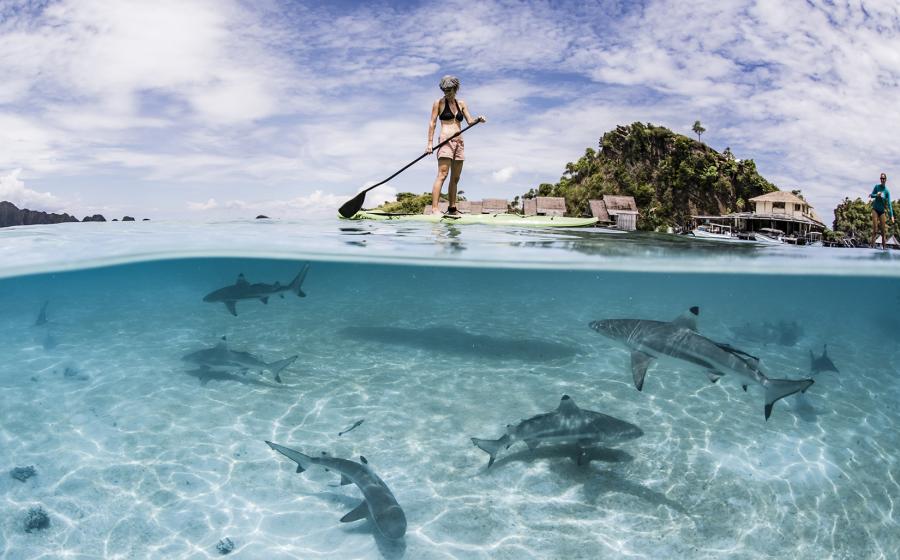The Magic of Hawaii's Night Dives
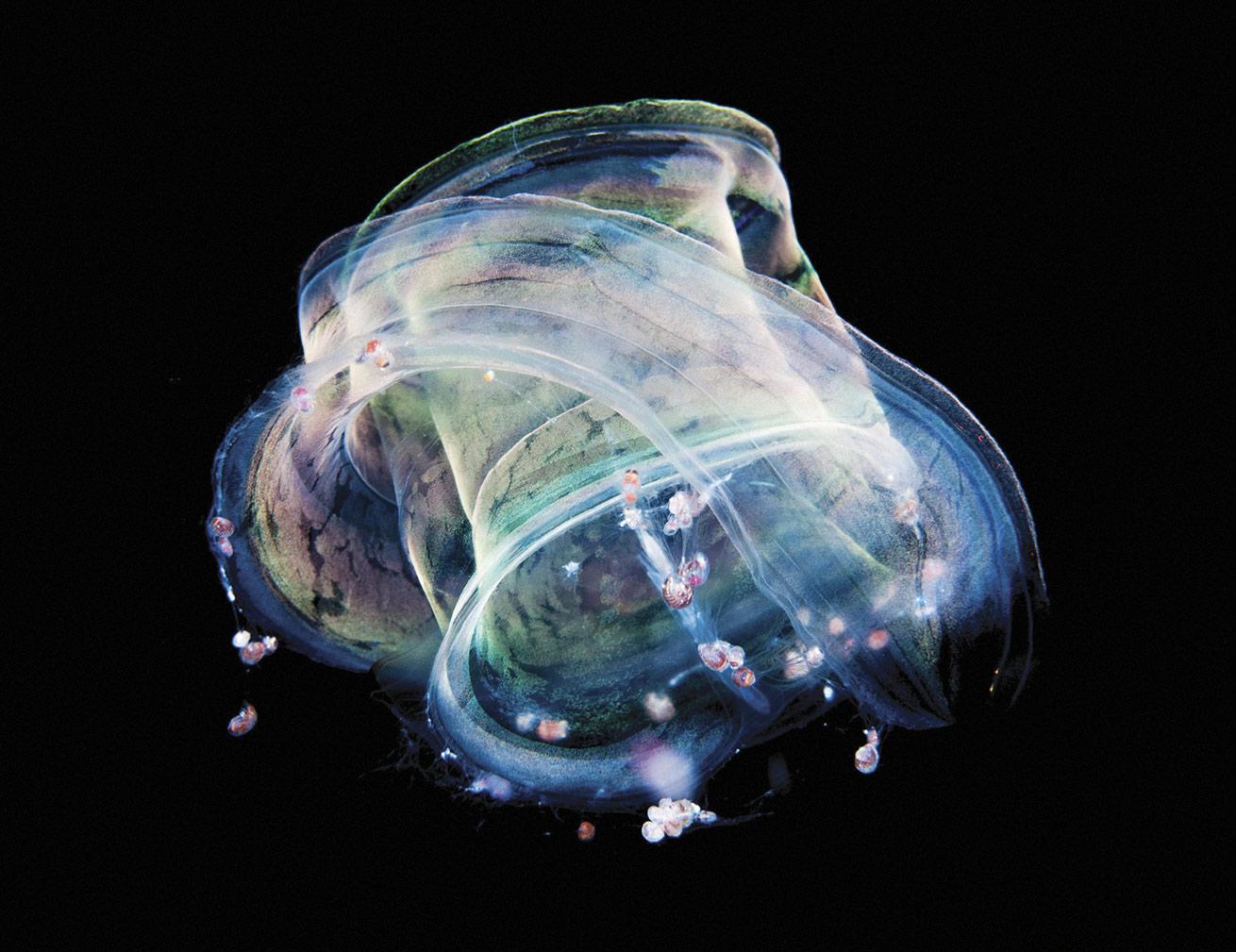
Jack's Diving Locker
Every night, thousands of strange creatures swarm the waters off the coast of Kona, Hawaii. Some are iridescent, others are nearly transparent and many appear to be extraterrestrial.
“Diving at night, in the dark, tethered to the boat, isn’t what people normally think of when they learn to dive,” says Teri Leicher, managing partner at Jack’s Diving Locker. “Pelagic Magic is an out-of-this-world experience.”
The Pelagic Magic Distinctive Specialty is a blackwater drift dive offered by Jack’s Diving Locker in Kona. “I named the dive ‘Pelagic Magic’ because ‘blackwater diving’ sounded scary, and the light refraction that you see in the animals is truly magical,” says Teri.
Back in the 1980s, Chris Newbert started diving a few miles off the Kona coast at night. His photos inspired other divers, including Stan Waterman and Bonnie Carrine, to try the dive and research the strange creatures.
Word spread and an increasing number of divers wanted to try blackwater drift diving. Teri Leicher’s husband, Jeff, and the crew at Jack’s Diving Locker developed a tether system so divers wouldn’t get lost. Jeff developed the Pelagic Magic Distinctive Specialty course shortly thereafter.
Related Reading: Discover Hidden History With the U-352 Distinctive Specialty Course
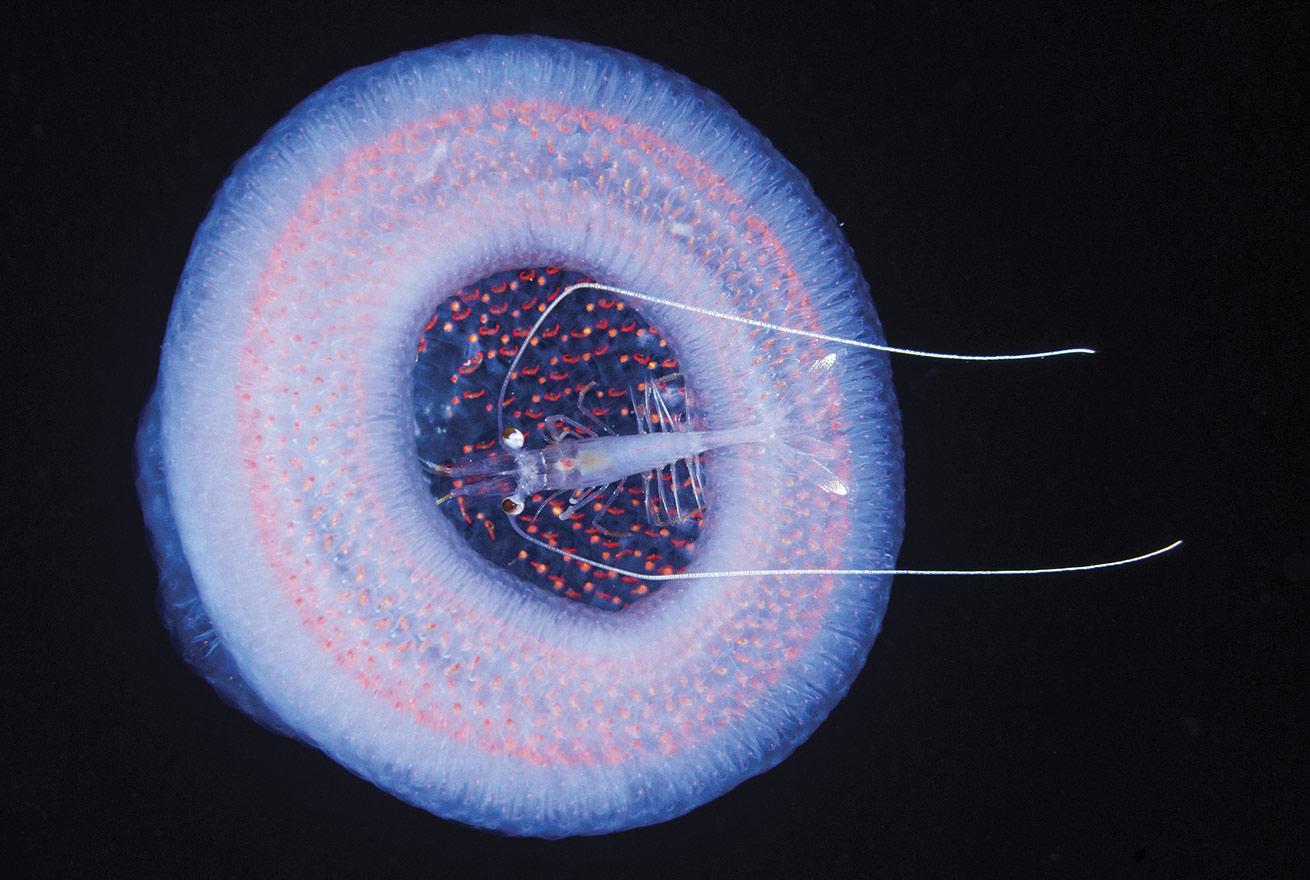
Jack's Diving Locker
On an average night, divers can expect to see deep-water squid; shrimp riding on jellyfish; and familiar critters, such as flounders and lobsters, that are almost unrecognizable in their larval stage. Pelagic seahorses, cookiecutter sharks and dolphins may also make an appearance.
Hanging suspended in the dark ocean above an underwater trench thousands of feet deep is an adrenaline rush for many divers. Others describe the experience as serene or like floating in outer space.
“Many divers become strangely addicted to this dive,” Teri says. “Others… Well, they stick to day diving or manta dives.”
For divers who aren’t sure if they’re ready for Pelagic Magic, Teri recommends trying a different night dive first, such as the manta ray night dive. “Participants must be comfortable diving in the dark and should not need hand-holding.”
Before the dive, there is an extensive briefing about the tether system and an overview of creatures likely to show up. Divers also learn about the important relationship between deep-water plankton zones and shallower reefs. There is no homework, but there is a short quiz.
Related Reading: A Land-and-Sea Tour of Hawaii's Big Island

Jack's Diving Locker
To earn a Pelagic Magic Distinctive Specialty certification, divers must make two Pelagic Magic dives over two nights. The course takes two nights because each dive requires an entire evening. The boat departs at 5:30 p.m. and returns between 9 and 10 p.m.
“Divers are on a tether and do not go deeper than about 45 feet,” Teri says. “Most divers get 60 to 80 minutes from their tank because it’s an effortless dive.”
The majority of animals are small and viewed inches from your mask. They are not microscopic, but a prescription mask or a mask with diopters can enhance the dive for anyone who doesn’t see well close-up. Some divers bring a magnifying glass.
“Learning to focus on transparent animals right in front of my mask has enhanced the way I experience ‘normal’ dives,” says Jeff. “I’ve started noticing planktonic creatures during the day, especially on safety stops.”
For divers who enjoy the strange and unusual, the Pelagic Magic Distinctive Specialty is an excellent opportunity to experience the underwater world in a new way. The dive is offered twice a week throughout the year, but the boat fills up quickly. To learn more or to receive your space, visit jacksdivinglocker.com.
When to Go Blackwater Diving in Hawaii
The Pelagic Magic Distinctive Specialty course is offered year-round, but the best diving conditions are March through November. This popular dive fills quickly; interested divers should contact Jack’s Diving Locker to schedule in advance.
This column features unique scuba courses at PADI Dive Shops around the world. To recommend a course for this column, please email [email protected].


